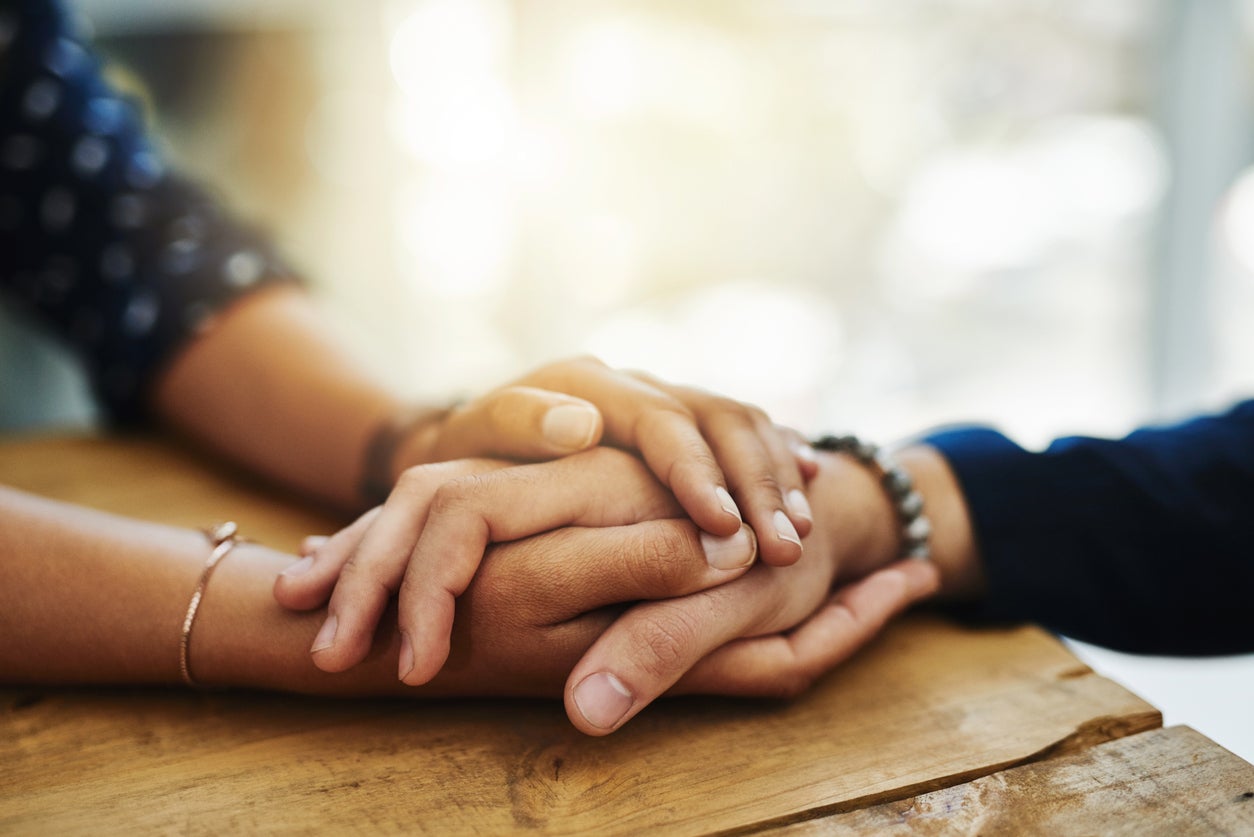When my mother died, people told me having a child would ease the pain. Did they know how offensive this was?
Whatever anyone tells me, creating a new life certainly won’t replace the person I lost or nullify the pain


Your support helps us to tell the story
From reproductive rights to climate change to Big Tech, The Independent is on the ground when the story is developing. Whether it's investigating the financials of Elon Musk's pro-Trump PAC or producing our latest documentary, 'The A Word', which shines a light on the American women fighting for reproductive rights, we know how important it is to parse out the facts from the messaging.
At such a critical moment in US history, we need reporters on the ground. Your donation allows us to keep sending journalists to speak to both sides of the story.
The Independent is trusted by Americans across the entire political spectrum. And unlike many other quality news outlets, we choose not to lock Americans out of our reporting and analysis with paywalls. We believe quality journalism should be available to everyone, paid for by those who can afford it.
Your support makes all the difference.Empathy – the ability to identify with another person – is vital to society. We want our doctors, nurses and politicians to have a large dose of it. Empathy is having a good sense of what another person is feeling. In extreme cases, people who don’t have empathy are called sociopaths. But there’s a problem with empathy and, strangely, I stumbled upon it while I was grieving the loss of my mother.
When my mother died from cancer, aged just 62, on Christmas Eve in 2014, I noticed something cynical in the months that followed. I was told, by a number of mothers, that my grief was prolonged because I didn’t have children. Women with children said, “I know how you feel,” and then told me that the love I would feel for my own child would nullify the pain of losing my mother. It was as if I was somehow responsible for the pain I was in because of my choice of being childfree.
If I had a child, that would only add to the many reasons to miss my mum, wouldn’t it? “If only my mum was here to see the Christmas nativity play” or “I wish my mum was here to help me with childcare.” The scenarios are endless. I already gaze at daughters with their mothers and feel a pang of pain. Surely, expecting a child to take away the pain of losing my mum would be a serious case of trying to put a square shape peg into a round hole?
I would never apply the same facile logic to someone who had just lost a child: “Another child will help you get over the child you lost” or “You have other children, your pain can’t be that great.” And yet it makes better logical sense: you can have more children, but you only have one mother. Even though I understood the thought process behind it – unconditional love between a mother and a child – the comments felt callous. The fact that a child would give me a purpose and a distraction felt deeply patronising and suggested that my life as it was had none.
We seek empathy in times of trauma. Paradoxically, however, the words “I know how you feel,” can be the last words we want to hear. We want our experiences to be acknowledged as being unique to us. We cannot really know how another person feels. We do not have access to someone else’s thoughts and feelings.
When someone says they know how I feel about losing my mother in her early sixties because they experienced losing their elderly mother, their empathy only stretches so far. There’s a whole history that I have with my mother that is not accessible to others, which impacts on how I feel about her death, not just her age. For example, my father may have been particularly awful, so her role as a mother might have been more crucial because of my father’s failings. Even if the person can adequately understand my feelings – they, too, lost their mum at 62 and had an almost identical upbringing – we still perceive the world through our own senses. There’s the world as it is and then the world perceived through our own unique prism.
There is a problem when empathy no longer feels like a prized trait but an assumption about our feelings. There is more assumption than empathy when people suggested a child would help my grief. They assumed they knew how I felt about children. And those whose mothers had untimely deaths assumed I would feel the same way as they felt in the same situation. They also assumed that a child – a child that doesn’t exist – would help nullify my pain. Ultimately, they assumed that I would feel the same way as they do about having children and grief.
There is irony in all this, of course. Empathy is crucial to our existence, it’s why we talk about our problems, it’s why we read books – to know that we’re not alone. While it is true we want our experiences and feelings to be acknowledged as being unique to us, we also want our feelings to be felt by others. But we must be mindful that experience is unique to each individual. When we assume how someone feels, we risk ignoring their uniqueness and separateness. To me, acknowledging this is just as important as being empathetic.



Join our commenting forum
Join thought-provoking conversations, follow other Independent readers and see their replies
Comments